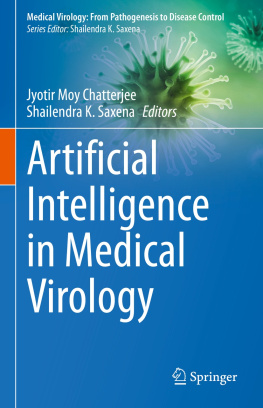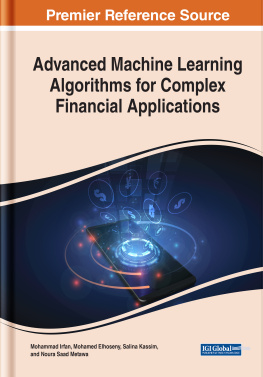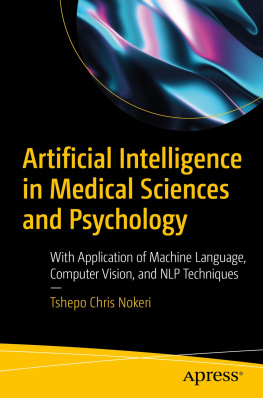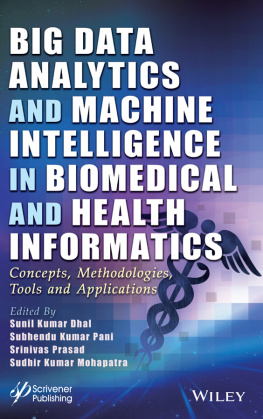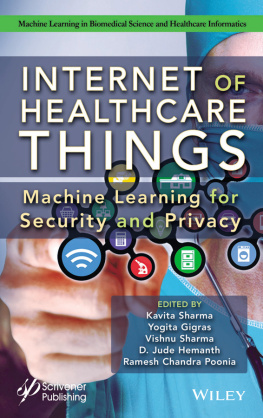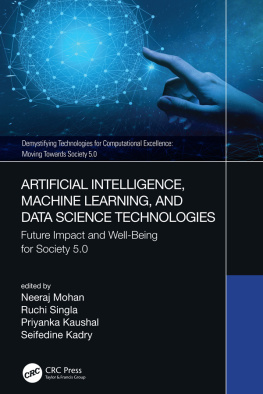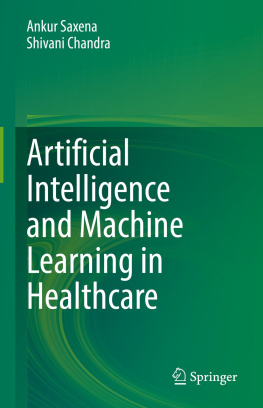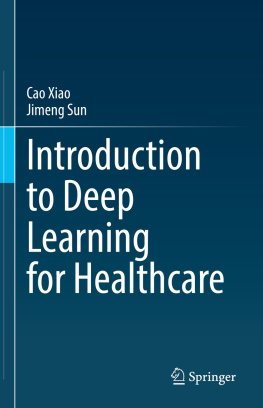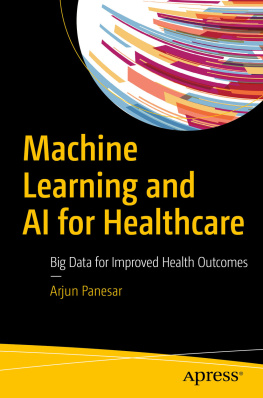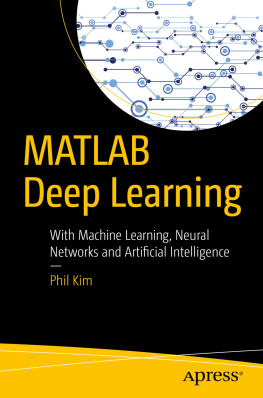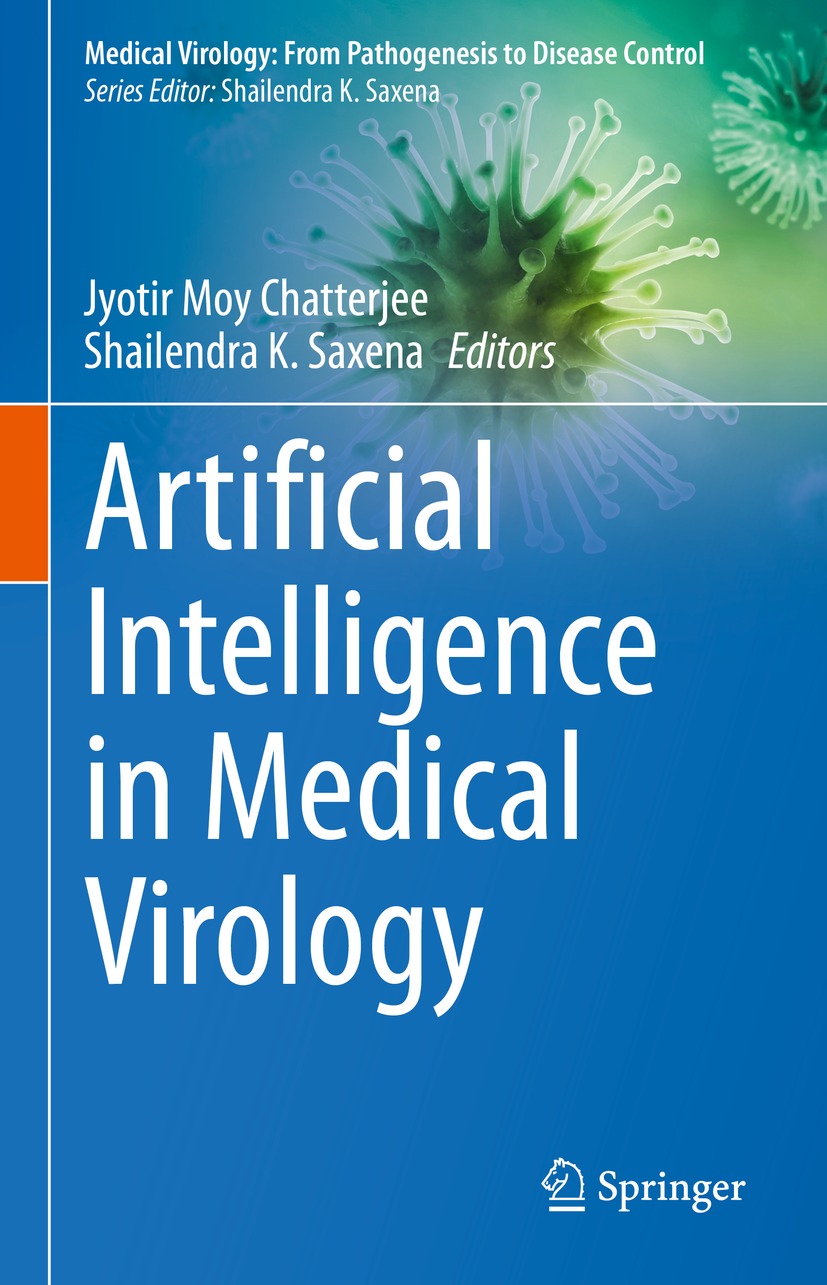Medical Virology: From Pathogenesis to Disease Control
Series Editor
Shailendra K. Saxena
Faculty of Medicine, Centre for Advanced Research, King Georges Medical University, Lucknow, Uttar Pradesh, India
This book series reviews the recent advancement in the field of medical virology including molecular epidemiology, diagnostics and therapeutic strategies for various viral infections. The individual books in this series provide a comprehensive overview of infectious diseases that are caused by emerging and re-emerging viruses including their mode of infections, immunopathology, diagnosis, treatment, epidemiology, and etiology. It also discusses the clinical recommendations in the management of infectious diseases focusing on the current practices, recent advances in diagnostic approaches and therapeutic strategies. The books also discuss progress and challenges in the development of viral vaccines and discuss the application of viruses in the translational research and human healthcare.
Editors
Jyotir Moy Chatterjee and Shailendra K. Saxena
Artificial Intelligence in Medical Virology

The Springer logo.
Editors
Jyotir Moy Chatterjee
Department of Information Technology, Lord Buddha Education Foundation (Asia Pacific University of Technology & Innovation), Kathmandu, Nepal
Shailendra K. Saxena
Faculty of Medicine, Centre for Advanced Research, King Georges Medical University, Lucknow, Uttar Pradesh, India
ISSN 2662-981X e-ISSN 2662-9828
Medical Virology: From Pathogenesis to Disease Control
ISBN 978-981-99-0368-9 e-ISBN 978-981-99-0369-6
https://doi.org/10.1007/978-981-99-0369-6
The Editor(s) (if applicable) and The Author(s), under exclusive license to Springer Nature Singapore Pte Ltd. 2023
This work is subject to copyright. All rights are solely and exclusively licensed by the Publisher, whether the whole or part of the material is concerned, specifically the rights of translation, reprinting, reuse of illustrations, recitation, broadcasting, reproduction on microfilms or in any other physical way, and transmission or information storage and retrieval, electronic adaptation, computer software, or by similar or dissimilar methodology now known or hereafter developed.
The use of general descriptive names, registered names, trademarks, service marks, etc. in this publication does not imply, even in the absence of a specific statement, that such names are exempt from the relevant protective laws and regulations and therefore free for general use.
The publisher, the authors, and the editors are safe to assume that the advice and information in this book are believed to be true and accurate at the date of publication. Neither the publisher nor the authors or the editors give a warranty, expressed or implied, with respect to the material contained herein or for any errors or omissions that may have been made. The publisher remains neutral with regard to jurisdictional claims in published maps and institutional affiliations.
This Springer imprint is published by the registered company Springer Nature Singapore Pte Ltd.
The registered company address is: 152 Beach Road, #21-01/04 Gateway East, Singapore 189721, Singapore
Foreword
Artificial intelligence (AI) is increasingly being used in medical virology healthcare to improve the diagnosis, treatment, and management of viral diseases. With the increasing amount of data generated from various sources, including electronic medical records, genomics, and imaging, AI has the potential to play a major role in helping healthcare providers make better and more informed decisions.
One of the main applications of AI in medical virology is in the early detection and diagnosis of viral diseases. AI algorithms can be trained to identify patterns and features in medical images and genomics data that are indicative of viral infections. This can help healthcare providers quickly identify viral diseases and start treatment as soon as possible, reducing the risk of serious complications and the spread of the disease.
This book consists of 11 chapters. The first chapter describes the importance of artificial intelligence for global healthcare. The second chapter presents a quick assessment of the impact of the epidemiology of COVID-19 with the help of artificial intelligence. Chapter ) deals with the Deep Autoencoder Neural Networks for Heart Sound Classification.
I hope that this book will provide a useful resource of ideas, techniques, and methods for research on the theory and applications of artificial intelligence in Medical Virology.
Harish Garg
Preface
The proposed book inspects work that has been attempted or is planned, in the fields of artificial intelligence (AI) and virology, with an end goal to advance ongoing and future work, exploration, and health. Fields and techniques tended to incorporate medical biology, bioinformatics, AI, natural language processing, data science, data mining, machine learning (ML), neural networks, and so forth. This book presents an extensive outline of the field, going from its set of experiences and specialized establishments to explicit clinical applications lastly to possibilities. AI is growing across all areas rapidly. Medication, with the accessibility of huge multi-dimensional datasets, fits solid expected headway with the proper tackling of AI. The combination of AI can happen all through the continuum of medication: from fundamental lab revelation to clinical application and medical care conveyance. Incorporating AI inside medication has been met with both excitement and criticism. By seeing how AI functions and fostering an appreciation for the two constraints and qualities, clinicians can outfit its computational ability to smooth out the work process and work on understanding consideration. It additionally gives the chance to develop research techniques past the thing that is right now accessible utilizing conventional factual methodologies. Then again, computer researchers and information experts can give arrangements, however, regularly need simple admittance to clinical knowledge that might assist with centring their endeavours.
The book also discusses progress and challenges in the development of viral vaccines and discusses the application of viruses in translational research and human healthcare. Furthermore, the book discusses AI-mediated diagnosis, and how machine learning can help in the development of drugs to treat the disease.
Chapter explains how the global health sector has suffered from the chronic problem of insufficient resources and is under the pressure of meeting the ever-increasing demand for diverse areas of service. AI is now an additional capacity for a wide range of issues from clinical diagnostic decision-making, conducting medical intervention (e.g. robotic surgery), follow-up clinical surveillance, patient-enabled self-assessment, and basic ill-health management at the community level, and public health AI has facilitated strategic planning, decision-making, and service delivery.
To deal with the Global Health Crisis (GHC), AI has been used at many levels of the healthcare sector. On the other side, AI has both benefits and drawbacks. As a result, COVID-19 undertook an evaluation of AI applications and that is explored in Chap..

